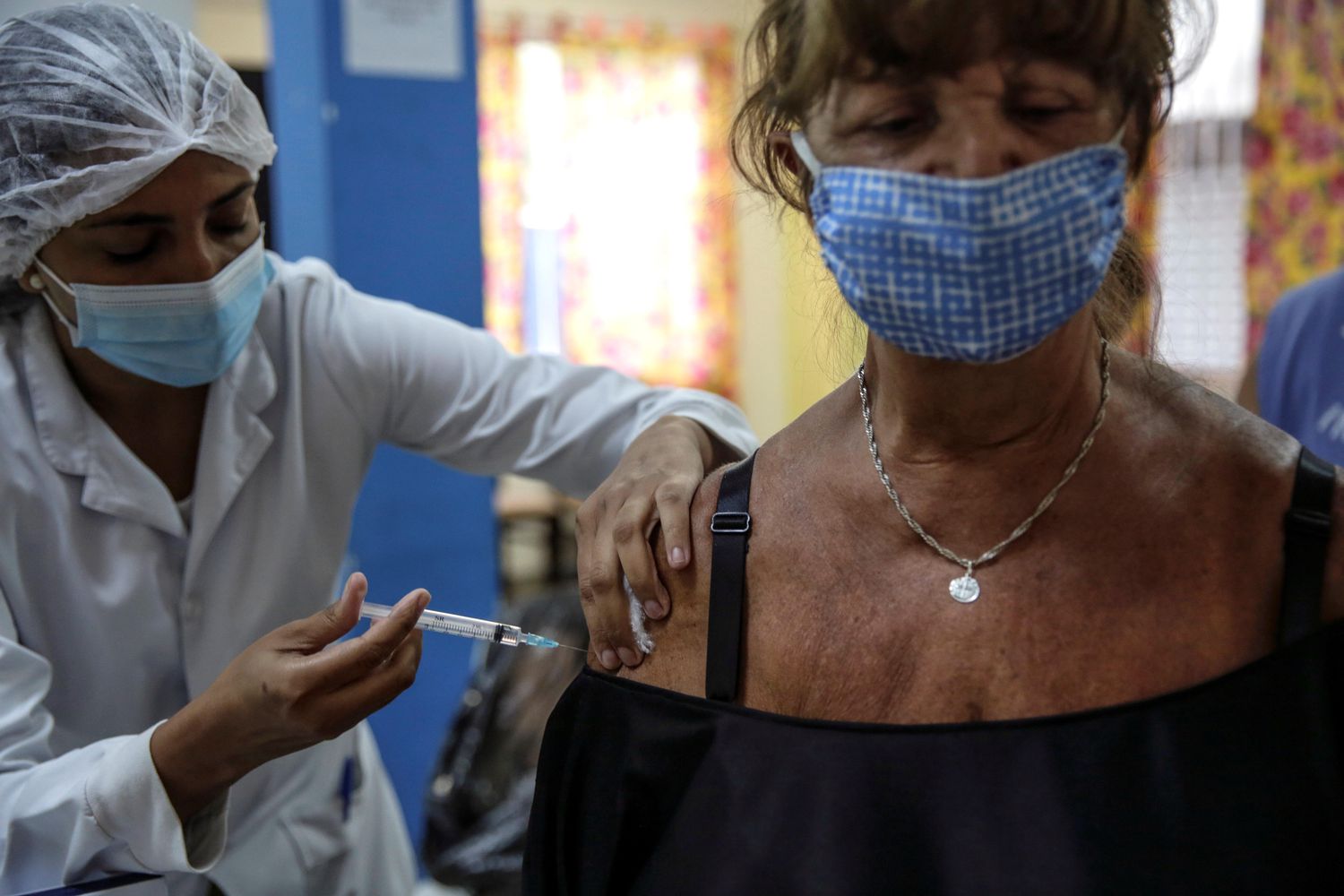RIO DE JANEIRO, BRAZIL – Congress, mayors, governors and entrepreneurs are racing to expedite the purchase of immunizers and unblock the vaccination campaign, aware that only then will the economy rebound.
Vaccination against Covid-19 leads to optimism in many countries and Brazil is now trying to make up for lost time. Countries advancing rapidly in vaccination, such as Israel and the United States, have produced official data that registered a significant drop in the number of deaths over the past month. They say that they are starting to see the light at the end of the tunnel.

Brazil is moving slower in a campaign marked by vaccine shortages, often due to never-ending quarrels between the increasingly hostile political left and right. Compromising is not a strength of this country.
The over 6.5 million Brazilians so far inoculated represent 3.1% of the Brazilian population – by comparison, Chile has already vaccinated 16% of its citizens. On the other hand, Latin America’s ‘model student’ Uruguay is only just beginning the vaccination campaign.
Governors, mayors, Congress and entrepreneurs are trying to overcome the obstacles, and speed up vaccination in Brazil – following the widely accepted narrative that only a mass vaccination campaign will allow the economy to rebound as soon as possible.
The most recent initiative is the creation of a consortium of municipalities to buy immunizers. The initiative was introduced by the National Front of Mayors (FNP), an organization comprising the 412 cities with more than 80,000 inhabitants, and has already received one hundred members. Participation in the consortium is open also to smaller-sized cities. According to Jonas Donizette (PSB), ex-mayor of Campinas and FNP’s current chairman, the goal is to buy as many vaccines as possible, including with federal government funds.
“If we manage to get federal government funding, all of it will be allocated to the National Immunization Program (NIP). If not, the municipalities involved will be entitled to receive doses in proportion to their investment,” he said.
Municipalities have until March 5th to declare their interest in joining the group. The initiative should be formalized in the next few days, with the creation of a CNPJ (Tax Registry of Legal Entities) and the election of a board of directors, so the group may be able to purchase. “We want the government to seek all vaccines. What we can’t do is have mayors standing by watching and doing nothing,” argued Donizette.
The purchase of vaccines by municipalities and state governments became possible after a Supreme Court decision last week. The federal government has until mid-March to decide on the purchase of 100 million doses of the Pfizer/BioNTech vaccine, which was granted final registration by the Brazilian health regulatory agency ANVISA on February 24th. The Ministry of Health has been complaining that some sales clauses are abusive, which has led state governments, such as Bahia’s, to begin negotiating the purchase.
Espírito Santo governor Renato Casagrande (PSB) assured that the 27 state governments are committed to joint purchases. The Russian Spunitk V vaccine is also on the radar of the state authorities. A total of 18 governors are scheduled to travel to Brasília on Tuesday and visit the headquarters of União Química, the company representing the Sputnik V in Brazil and a candidate for local manufacture of the vaccine.
Speeding up vaccination has also become a priority for the presidents of the Chamber, Arthur Lira (Progressistas), and the Senate, Rodrigo Pacheco (DEM). The former met with Bolsonaro and ministers Paulo Guedes (Economy), Luiz Eduardo Ramos (Government Secretariat), Eduardo Pazuello (Health) and Walter Souza Braga Netto (Chief of Staff) over the weekend. He left the meeting with a “very optimistic” vaccination schedule with an expected delivery of at least 25 million doses in March by the PNI. But the delivery could be higher and reach 39 million by the end of the month. “If prospects remain the same and everything goes well, we may have around 140 million vaccine doses in March, April and May,” said Lira at the end of the meeting.
According to the São Paulo government, the Butantan Institute will deliver 21 million Coronavac doses in March, 17% more than expected for the month. According to the Doria administration, the Butantan has doubled production capacity at its plant, which now operates 7 days a week, 24 hours a day. A total of 46 million doses are expected to be delivered by late April, and another 54 million by the end of August – one month ahead of the initial schedule. Also scheduled for March is the delivery of 2 million doses of the AstraZeneca/Oxford vaccine imported directly from India, another 2.6 million delivered by the Covax Facility consortium, and another 12.9 million produced in Rio de Janeiro by Fiocruz.
In turn, Rodrigo Pacheco has authored a bill that allows private companies to buy immunizers. According to the bill, the purchased vaccines should be fully allocated to the PNI while the vaccination of priority groups is in progress. The bill is now pending in the Chamber of Deputies.
On Monday, Pacheco and Lira met with Paulo Skaf, president of the Federation of Industries of the State of São Paulo (FIESP), to discuss vaccination, among other topics. Executives and industry sector representatives have joined the immunization race through the ‘Unidos pela Vacina’ (United for the Vaccine) movement and supported Pacheco’s proposal. Led by entrepreneur Luiza Trajano, they are not trying, at least for the time being, to buy immunizers themselves.
The current goal is to unblock the ongoing vaccination process, by identifying the challenges faced by states and municipalities and helping in the logistics, in the purchase of supplies and equipment. Worried about a potential collapse of public health, they are trying to speed up the vaccination calendar as much as possible. They are aware that this is the only solution for the economy, and their businesses, to start moving again.
With information from El Pais

